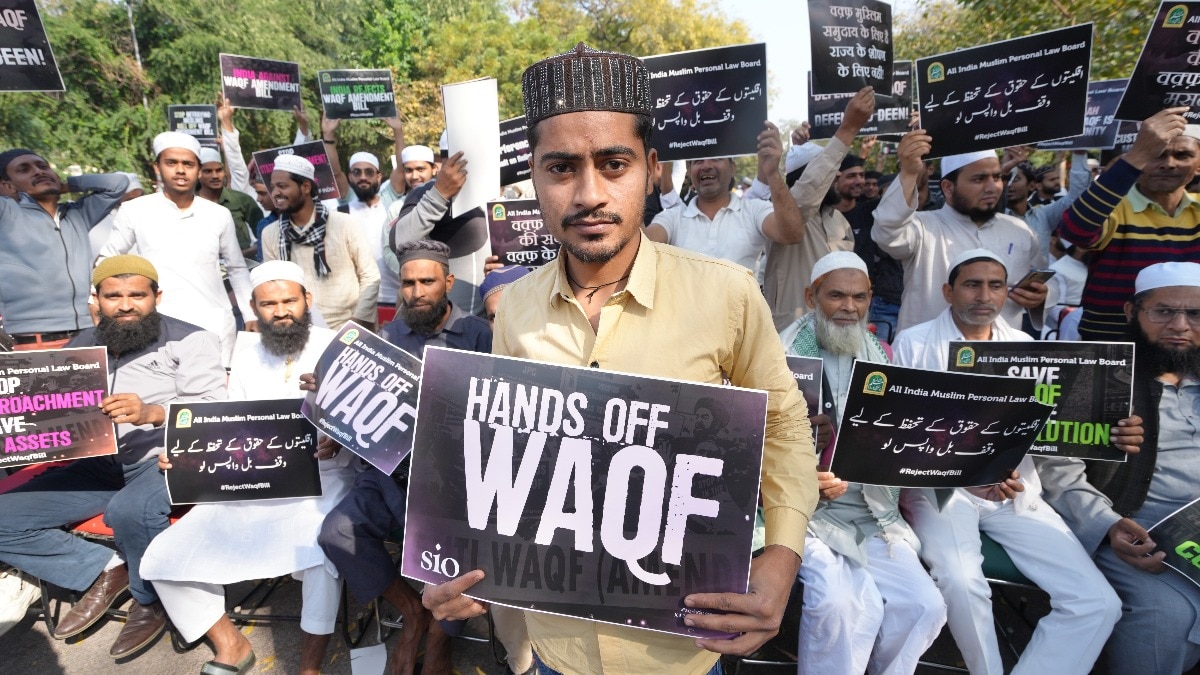What are the objections of the opposition and Muslim organizations on the Waqf Bill? Understand the process and number of passing in Parliament – WAQF Amendment Bill Opposition and Muslims Organizations Objections and Number Game in Parliament NTCPAN
The second phase of the budget session of Parliament is going on and next week the Waqf Amendment Bill can be introduced in the House. The bill was produced in the Lok Sabha on 8 August 2024, but after an uproar, the bill was sent to JPC. But now anytime the government can present this bill in the Lok Sabha. This bill is angry with Muslim organizations to opposition parties and they allege that the government wants to capture the assets of Waqf through the bill.
Government VS Opposition on Bill
The government believes that the Waqf Amendment Bill will provide the right to regulate Waqf properties and settle disputes related to such assets. At the same time, the government is of the opinion that Waqf’s property will be used better through the bill and Muslim women will also get help. The JPC headed by BJP MP Jagdambika Pal approved the 14 amendments proposed for the bill on behalf of BJP and its allies on January 27 this year, while rejecting 44 amendments proposed by the opposition.
There are mainly four major objections of Muslim organizations and opposition regarding the Waqf Bill.
1. You can now go to the High Court against the verdict on any Waqf’s property dispute. However, the decision of the first Waqf Tribunal was considered to be the last.
2. Now without donating, Waqf cannot assert its authority over any property, but earlier with the claim, any property was the right to Waqf.
3. The Waqf Board should have two members from women and other religions. But earlier there were no members of women and other religions in the board.
4. Collector will be able to survey the property of Waqf and has been given the right to determine the property.
Muslim organizations allege that this bill is a threat to religious and constitutional rights of Muslims. He believes that Waqf properties are not government property but of religious trusts and this bill is going to take away the autonomy of Waqf. It is alleged that this bill makes such changes in the current Waqf Act of 1995, which gives the government the right to interfere in the management of Waqf properties.
What is Waqf
In the Islamic tradition, Waqf is a religious donation made for the benefit of Muslims. Such assets cannot be sold or used for any other purpose, nor can they be inherited, rather they are always dedicated in the path of Allah. The assets of the vaqf cannot be claimed again. A large number of properties in the country are used for mosques, madrasas and cemeteries and many other property are lying vacant or they have been encroached.
ALSO READ: Purpose against Waqf Bill, Protest of Muslim Personal Law Board at Jantar Mantar from today
Currently all these Waqf properties are under the Waqf Act 1995, which makes the formation of state level boards compulsory for their management and administration. These boards include the state government’s nominee member, Muslim MLAs, members of the State Bar Council, Islamic Scholars and Administrators of Waqf properties.
9 lakh acres of land on board
According to the government, the Waqf Board is one of the biggest landlords in India. There are at least 8,72,351 Waqf properties across the country, which are spread over more than 9 lakh acres, which are more than Rs 1 lakh crore. The Waqf Board is the largest landlord in India and the Indian Railways after the Indian Railways. The government alleges that corruption in Waqf properties and Waqf boards is very high and to improve it, the Waqf Amendment Bill has been brought.
What is number game in Parliament
Passing the bill in Parliament is not challenging for the government because the bill is already coming through JPC. At the same time, the government has a sufficient majority in the Lok Sabha with 542 members and if the division is also done on the bill apart from the sound, then this bill will be easily passed from the House. The NDA currently has 293 MPs in the Lok Sabha, including 240 BJP members. At the same time, India block has 233 MPs with 99 MPs of Congress. Apart from this, some MPs have won independents and there are some who are not part of NDA and India blocks.
Also read: JPC report presented in Rajya Sabha on Waqf Bill, SP announced protest and Congress said unconstitutional
Similarly, the number of members in Rajya Sabha is currently 236, in which BJP has 98 members. At the same time, the number of NDA members is around 115. Generally, the number of NDA with six nominated members who vote in favor of the government increases to more than 120, which will easily cross the existing figure of the majority.
The upper House has 27 members of the Congress, while its allies have 58 members, leading to the total number of members of the opposition coalition in the Rajya Sabha, 85, the Rajya Sabha has a large number of members in the Rajya Sabha, in other parties with a large number of members, YSR Congress has 9 and BJD. AIADMK has four members and three independents and members of small parties, who are not with NDA or India blogs.
Protest against bill
A demonstration took place on Monday at Jantar Mantar in Delhi under the leadership of All India Muslim Personal Law Board (AIMPLB) in protest against the bill. Representatives of all opposition parties including Asaduddin Owaisi participated in it. The board says that AIMPLB members have spoken to the NDA’s leading constituent JDU Neti Nitish Kumar and TDP supremo Chandrababu Naidu to oppose the bill in Parliament. These leaders have been appealed to oppose the Bill in the House to protect minority rights.
In such a situation, if the attitude of both these major parties goes against the NDA in Parliament, then the government may be difficult to pass the bill, but in the current situation, there is no possibility of such a thing. JDU and TDP have already expressed their support for the bill.
(Tagstotranslate) Asaduddin Owaisi (T) Waqf (Amenment) Bill 2024 (T) Jantar Mantar (T) Budget Session of Parliament (T) Waqf Property (T) Waqf Property (T) Transparency of Waqf (T) Modi Government (T) All India Muslim Personal Law Board (T) AIMPLB (T) WAQF (A both) Bill (T) Opospition Members (T) Muslims Organizations (T) Parliament (T) Rajya Sabha (T) RAJYA SABAHA (T) Lok Sabha (T) BJP (T) Congress






